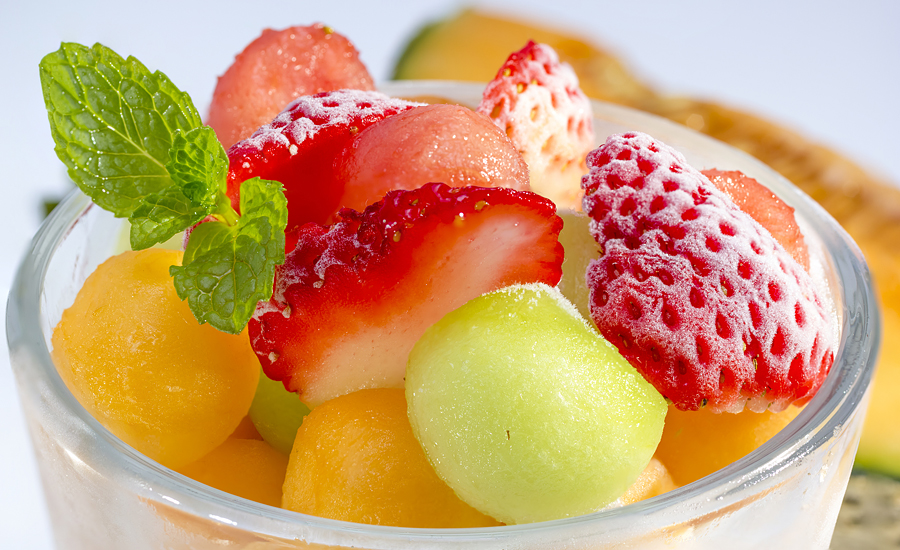The global IQF (individually-quick frozen) fruits market is projected to register a CAGR of 5% by 2028, according to “IQF Fruits Market: Global Industry Analysis 2013-2017 and Forecast 2018-2028,” a study produced by Persistence Market Research (PMR), New York.
On the basis of fruit type, the red fruits and berries segment is expected to maintain dominance, with a significant CAGR of 5.1% during the forecast period. The increasing tendency for developing countries to adapt to food trends has resulted in the worldwide growth of faster-to-prepare food products resulting in the increased consumption of IQF fruits.
The global IQF fruits industry grew to $7,821.5 million in 2017, and global fruit production in 2017 stood at 675 million metric tons. With an increase in GDP and increasing health awareness among consumers, the consumption of IQF fruits and products using IQF fruits as an ingredient, such as cheesecakes and other bakery products, is on the rise in developing countries.
However, freight and power costs in the frozen fruit sector are higher than those of other sectors of fruit preservation due to the special conditions required for transportation, like refrigerated/cold containers. High freight cost can diminish the growth of the IQF fruits market.
Developing countries such as India, South Africa and Brazil offer great opportunities for the global IQF fruits industry to expand, yet infrastructural challenges such as shortage of power and poor roads in these countries will restrain growth of the IQF fruits industry.
Increasing role of foodservice providers
Europe has many importers, but the IQF fruits market is consolidating. Supermarkets are increasingly organizing incorporated supply chains with a limited number of favored dealers or service providers. Larger importing dealers will also often act as foodservice providers to superstores, capitalizing on value-added services like ripening, packaging and mixing.
Frozen berries gain popularity
In the last five years, the maximum growth in the import value of IQF fruits was observed in frozen berries at 7%. Though, traditionally, the highest quantities of IQF fruit berries are supplied from Southeast European nations and Poland, there is constant development of manufacturing in other emerging regions such as Latin American countries, Mexico and China.
Supermarkets rule sales of IQF fruits
The global market is allocated into different sales channel, with superstores being the most imperative sales channel for IQF fruits as a new development in fresh produce.
The APAC region is expected to register the highest growth rates between 2018-2028, and is also expected to gain significant share in the IQF fruits market in terms of value in the years to come. According to market attractiveness, North America and Europe are relatively more attractive markets in the IQF fruits market.



